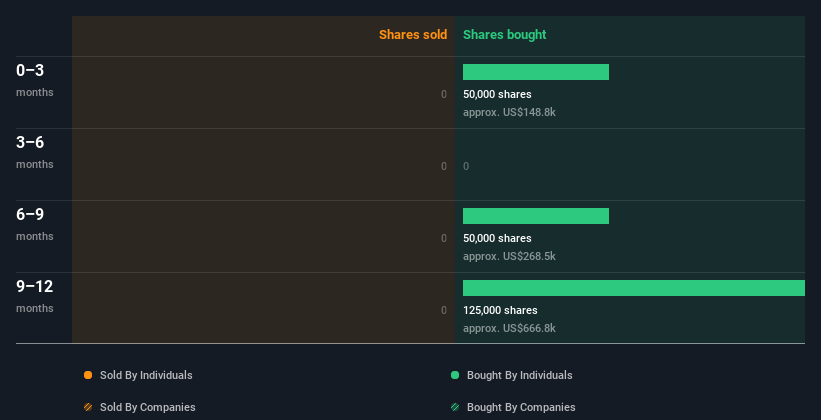Insider Spends US$149k Buying More Shares In Sabre
Investors who take an interest in Sabre Corporation (NASDAQ:SABR) should definitely note that the CFO & Executive VP, Michael Randolfi, recently paid US$2.98 per share to buy US$149k worth of the stock. That's a very solid buy in our book, and increased their holding by a noteworthy 28%.
Check out our latest analysis for Sabre
Sabre Insider Transactions Over The Last Year
The CEO, President & Director Kurt Ekert made the biggest insider purchase in the last 12 months. That single transaction was for US$534k worth of shares at a price of US$5.34 each. So it's clear an insider wanted to buy, even at a higher price than the current share price (being US$2.64). While their view may have changed since the purchase was made, this does at least suggest they have had confidence in the company's future. To us, it's very important to consider the price insiders pay for shares. Generally speaking, it catches our eye when insiders have purchased shares at above current prices, as it suggests they believed the shares were worth buying, even at a higher price.
In the last twelve months Sabre insiders were buying shares, but not selling. You can see a visual depiction of insider transactions (by companies and individuals) over the last 12 months, below. If you click on the chart, you can see all the individual transactions, including the share price, individual, and the date!
There are plenty of other companies that have insiders buying up shares. You probably do not want to miss this free list of growing companies that insiders are buying.
Insider Ownership
Another way to test the alignment between the leaders of a company and other shareholders is to look at how many shares they own. I reckon it's a good sign if insiders own a significant number of shares in the company. Our data indicates that Sabre insiders own about US$9.7m worth of shares (which is 1.0% of the company). Overall, this level of ownership isn't that impressive, but it's certainly better than nothing!
So What Do The Sabre Insider Transactions Indicate?
It's certainly positive to see the recent insider purchase. And the longer term insider transactions also give us confidence. However, we note that the company didn't make a profit over the last twelve months, which makes us cautious. On this analysis the only slight negative we see is the fairly low (overall) insider ownership; their transactions suggest that they are quite positive on Sabre stock. So while it's helpful to know what insiders are doing in terms of buying or selling, it's also helpful to know the risks that a particular company is facing. To that end, you should learn about the 3 warning signs we've spotted with Sabre (including 1 which is significant).
Of course Sabre may not be the best stock to buy. So you may wish to see this free collection of high quality companies.
For the purposes of this article, insiders are those individuals who report their transactions to the relevant regulatory body. We currently account for open market transactions and private dispositions of direct interests only, but not derivative transactions or indirect interests.
Have feedback on this article? Concerned about the content? Get in touch with us directly. Alternatively, email editorial-team (at) simplywallst.com.
This article by Simply Wall St is general in nature. We provide commentary based on historical data and analyst forecasts only using an unbiased methodology and our articles are not intended to be financial advice. It does not constitute a recommendation to buy or sell any stock, and does not take account of your objectives, or your financial situation. We aim to bring you long-term focused analysis driven by fundamental data. Note that our analysis may not factor in the latest price-sensitive company announcements or qualitative material. Simply Wall St has no position in any stocks mentioned.

 Yahoo Finance
Yahoo Finance 
